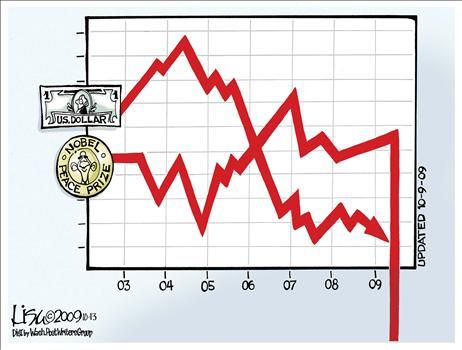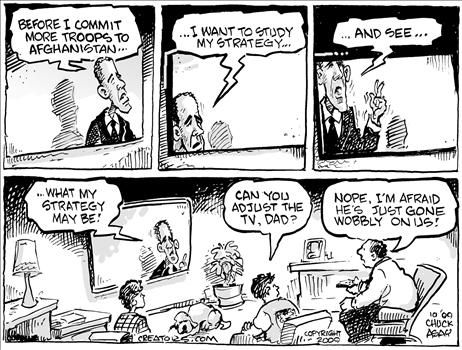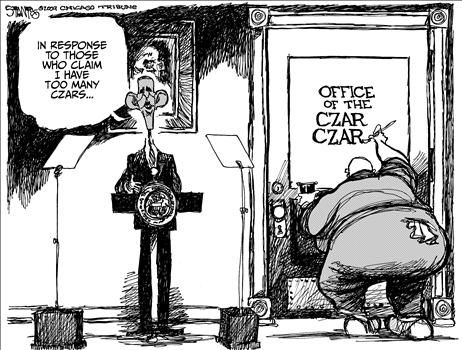PARTLY PERSONAL...
[I'm going to selfishly exercise some 'publisher's prerogative' by posting this up top today in the hope more of you will read it.
It's a topic I've attempted to convey myself {though not as well} a time or ten, and an aspect to our vastly expanded new-media 'information age' I've described as its Achilles heel - and which played no small part in my decision to destroy my private life by devoting an ever-increasing amount of it to the modest effort you're reading now.
I hope you'll give it a read and give it serious thought...]
Beware of Ideological Teamism
Many people don't realize it, but they are being exploited by a psychosocial phenomenon that is encouraging them to think irrationally. Everyone is susceptible, and it can lure you to betray your principles in order to support ideological causes.
"Ideological teamism" refers to people's desire to belong to a team representing that they want to believe, which corrupts their judgment in determining what to believe... "[snip]
First, consider a sporting event where a referee makes an incredibly close call in the final championship game. The referee's call is made within a cloud of dust, and he is the only one with a clear view of the critical event. The fans from the losing team instantly become furious and hostile. Rumors of a bad call are believed without any factual basis. Fans from the winning team instantly accept the referee's call. Neither side has any objective basis for having a strong opinion, and any chance for reviewing available evidence is obliterated by the subsequent focus on name calling, ad-hominem attacks and 'demonization' of all contrary opinion - usually by linking to any distasteful aspect that can be found, no matter how irrelevant... [snip]
[OR; your typical TV news 'discussion' between political/ideological 'pundits' (if not "experts" {if not actors})]
While many manifestations of teamism can lead to a harmless, exciting, and productive competition in sports and business, its corrupting influence on our judgment can have a detrimental effect on society when it affects other areas, such as science, economics, politics, and history. Our tendency to become emotionally attached to issues and ideologies encourages a loss of rationality by making us want to believe conclusions which support our ideology.
People tend to rationalize what they want to believe by seeking out information that confirms what they want to believe and by ignoring contradictory information... [snip]
[Hence my oft-repeated mantra to read that which you're unlikely to agree with {most titles suffice to identify} and my as frequent admission, being a point of discipline to do so myself, of how much harder that is than reading that which I agree with.
The payoff for this 'pain', however, is that's where the majority of new learning for any of us lies {even if the chaff vastly outweighs the wheat - see prior 'pain' reference}.]
As with many hazards in life, recognizing the hazard is often the key to prevention. This can be useful in identifying ideological teamism in you, as well as in other people.
[Probably the most flattering complement I've received re: this blog is the number of times I've been told that reading it, regardless of their political leanings, taught/showed/exposed - the verbiage varied - TV news consumers to spot biases (and frequently glaring omissions) they previously weren't noticing.
Exactly my mission (and proof of point re: if TV's your only source and was lying, how would you know?) - now they've the opinion options with which to make up their own minds (and it's generally none to flattering to the MSM).
What to watch for:
1. Emotional Attachment: ...
2. Emphasis on beating the other side: ... [Listening TS?]
3. Ridicule and Insults: ... [Yeah yeah, but it would be good for you to avoid...]
4. Vilification: There is a moral superiority in being [or defending] a victim...
What's in it for me?
By recognizing and preventing an emotional attachment to your ideologies, you may be less defensive and more rational in your thought processes. You'll be better able to test your beliefs and be less defensive about them. For the issues which you are right about, you will be better able to test them and discuss them calmly. For issues which you are wrong about, you'll be better able to see and accept a correction.
There's nothing illogical [or {inherently} 'extremists'] about having strong opinions, but if our intent is to truly 'do good' we need avoid the comfortable auto-defense of what we [currently!] believe and instead brave the uncomfortable [possibility of abandoning that we've come to associate ourselves with] by constantly reevaluating the rationale that led us to why we hold them.
You'll find that, with new knowledge, they frequently change..
[Leading one to wisdom... {OK a little Zen - but it sounded like a proper ending.}
And for those of you thinking otherwise, I do indeed read and post pieces from the full spectrum available based on {my grading of} their merit - as my past postings from Kos, Huffington's and Media Matters {among others} attest. Their infrequency is a function of blind squirrels finding nuts rarely - not my lack of subjecting myself, excuse: referencing such sites regularly. {and besides, a blog's got to have its standards...}
Lastly, if you recall the charter of this blog {left side-bar}, I'm attempting to provide a sample of (mostly, but not only) center-right opinion to counter-balance the (mostly, to the point of damn-near-only) left-left opinion force fed watchers of TV news by virtue of their offering no consumer control of story-selection (the most pervasive spin tactic), which the internet thankfully rectifies - but...
to avoid selection-spinning ourselves
- which brings us back to my promotion of this piece... not surprisingly, Highly Recommended > ]
READ MORE
[And if this blog services as your primary news source {I've my suspicions}, it shouldn't - go watch a little {small, minuscule} amount of TV - or pick up a paper {from wood - really}.]
.


























